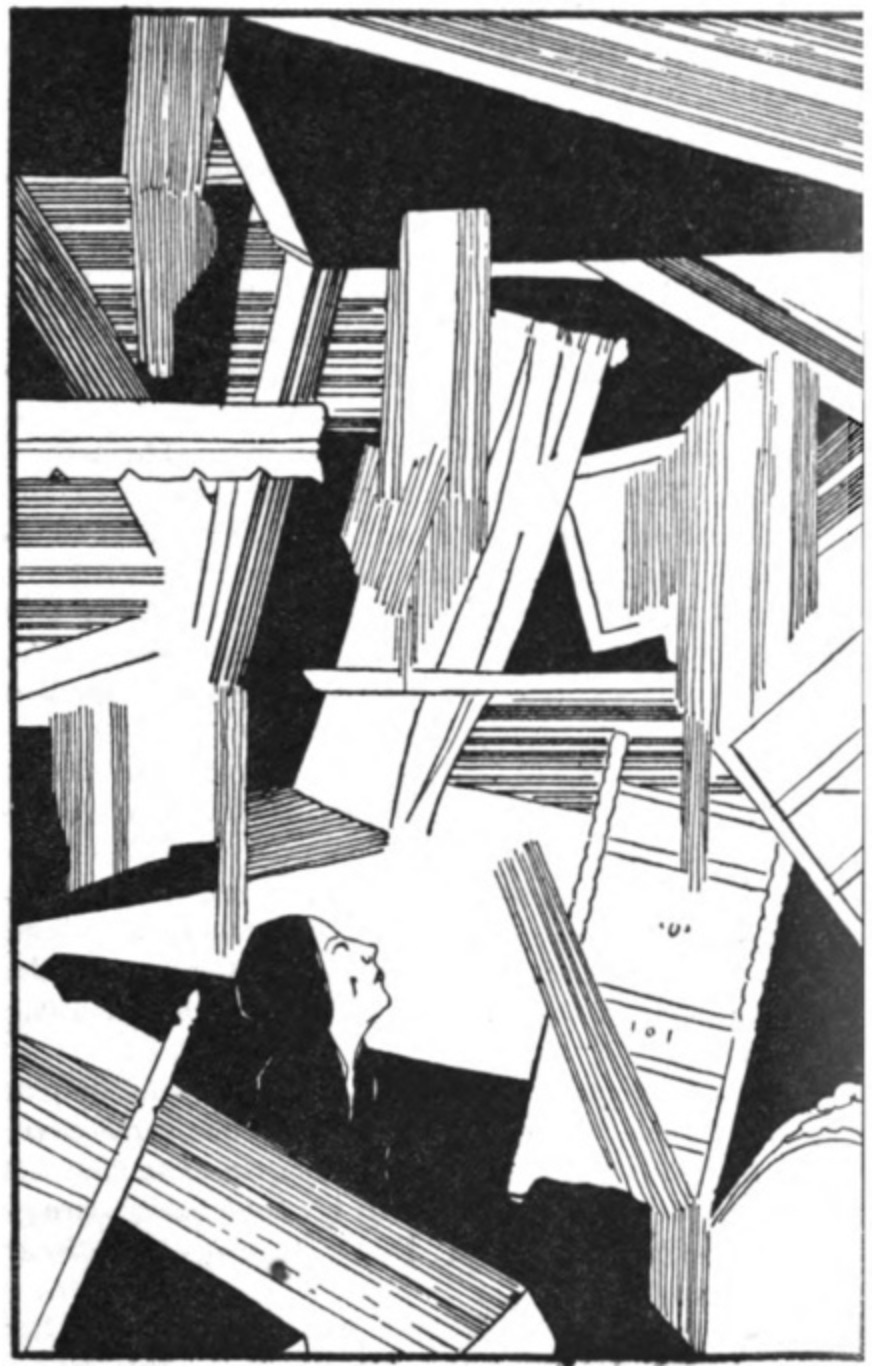WHERE THEIR FIRE IS NOT QUENCHED (3)
By:
January 16, 2024

May Sinclair’s “Where Their Fire is Not Quenched” was first published in the English Review in October 1922 and later appeared in Sinclair’s 1923 collection Uncanny Stories. It has frequently been reprinted in supernatural, horror, and fantasy anthologies; I’m grateful to Paul March-Russell, whose Modernism and Science Fiction encourages us to think of Sinclair as also being a proto-sf author. (PS: Interesting to compare this story’s ending with Sartre’s No Exit, p. 1944.) HiLoBooks is pleased to serialize it here for HILOBROW’s readers.
ALL INSTALLMENTS: 1 | 2 | 3 | 4 | 5 | 6 | 7 | 8 | 9 | 10.
He took her to a restaurant in Soho. Oscar Wade dined well, even extravagantly, giving each dish its importance. She liked his extravagance. He had none of the mean virtues.
It was over. His flushed, embarrassed silence told her what he was thinking. But when he had seen her home he left her at her garden gate. He had thought better of it.
She was not sure whether she were glad or sorry. She had had her moment of righteous exaltation and she had enjoyed it. But there was no joy in the weeks that followed it. She had given up Oscar Wade because she didn’t want him very much; and now she wanted him furiously, perversely, because she had given him up. Though he had no resemblance to her ideal, she couldn’t live without him.
She dined with him again and again, till she knew Schnebler’s Restaurant by heart, the white panelled walls picked out with gold; the white pillars, and the curling gold fronds of their capitals; the Turkey carpets, blue and crimson, soft under her feet; the thick crimson velvet cushions, that clung to her skirts; the glitter of silver and glass on the innumerable white circles of the tables. And the faces of the diners, red, white, pink, brown, grey and sallow, distorted and excited; the curled mouths that twisted as they ate; the convoluted electric bulbs pointing, pointing down at them, under the red, crinkled shades. All shimmering in a thick air that the red light stained as wine stains water.
And Oscar’s face, flushed with his dinner. Always, when he leaned back from the table and brooded in silence she knew what he was thinking. His heavy eyelids would lift; she would find his eyes fixed on hers, wondering, considering.
She knew now what the end would be. She thought of George Waring, and Stephen Philpotts, and of her life, cheated. She hadn’t chosen Oscar, she hadn’t really wanted him; but now he had forced himself on her she couldn’t afford to let him go. Since George died no man had loved her, no other man ever would. And she was sorry for him when she thought of him going from her, beaten and ashamed.
She was certain, before he was, of the end. Only she didn’t know when and where and how it would come. That was what Oscar knew.
It came at the close of one of their evenings when they had dined in a private sitting-room. He said he couldn’t stand the heat and noise of the public restaurant.
She went before him, up a steep, red-carpeted stair to a white door on the second landing.
From time to time they repeated the furtive, hidden adventure. Sometimes she met him in the room above Schnebler’s. Sometimes, when her maid was out, she received him at her house in Maida Vale. But that was dangerous, not to be risked too often.
Oscar declared himself unspeakably happy. Harriott was not quite sure. This was love, the thing she had never had, that she had dreamed of, hungered and thirsted for; but now she had it she was not satisfied. Always she looked for something just beyond it, some mystic, heavenly rapture, always beginning to come, that never came. There was something about Oscar that repelled her. But because she had taken him for her lover, she couldn’t bring herself to admit that it was a certain coarseness. She looked another way and pretended it wasn’t there. To justify herself, she fixed her mind on his good qualities, his generosity, his strength, the way he had built up his engineering business. She made him take her over his works and show her his great dynamos. She made him lend her the books he read. But always, when she tried to talk to him, he let her see that that wasn’t what she was there for.
“My dear girl, we haven’t time,” he said. “It’s waste of our priceless moments.”
She persisted. “There’s something wrong about it all if we can’t talk to each other.”
RADIUM AGE PROTO-SF: “Radium Age” is Josh Glenn’s name for the nascent sf genre’s c. 1900–1935 era, a period which saw the discovery of radioactivity, i.e., the revelation that matter itself is constantly in movement — a fitting metaphor for the first decades of the 20th century, during which old scientific, religious, political, and social certainties were shattered. More info here.
SERIALIZED BY HILOBOOKS: James Parker’s Cocky the Fox | Annalee Newitz’s “The Great Oxygen Race” | Matthew Battles’s “Imago” | & many more original and reissued novels and stories.
